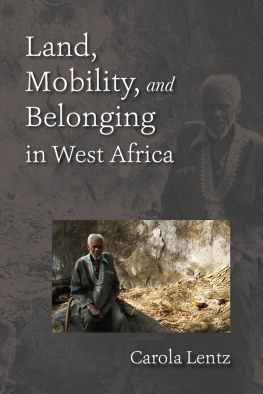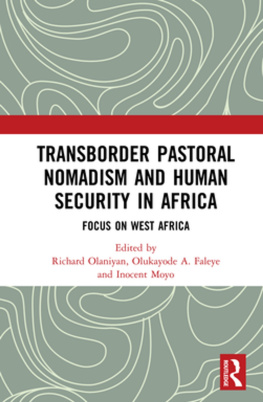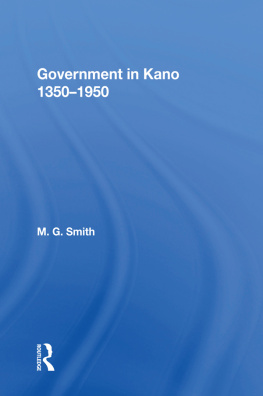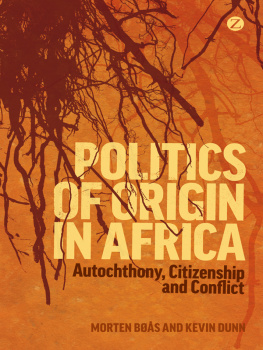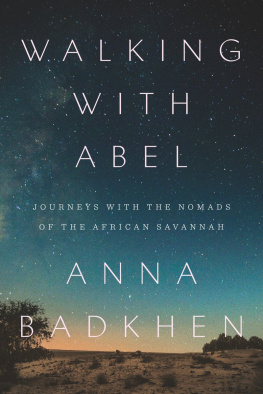
Environment and Identity Politics in Colonial Africa
Economic, political and ethnic favoritism are common themes in the historiography of colonial Africa. Land ownership and control, and the abilities of the respective landscapes to sustain Africas growing population amidst the throes of climate change, have created recurrent identity crises throughout Africa.
The books chapters elevate the discussion on recurrent environmental issues, the problems of contested ownership of land, autochthonism and the interaction and blending of different cultures in a restricted geographical space. The study highlights a neglected aspect of the history of Fulani migrations in West Africa the colonial extension of the Fulani into the Southern Cameroons (the Fulani as a group did not exist in the region prior to 1916). Therefore the introduction of the Fulani in the region, at a time when ethnic affinities and control over land had already crystallized, resulted in problems of a wider magnitude that have been carefully and meticulously addressed in this book.
Environment and Identity Politics in Colonial Africa makes a major contribution to colonial African historiography. It will be of interest to students and scholars of Modern Africa, African Environmental History and Colonial History.
Emmanuel M. Mbah is Associate Professor of History and Director of Africa and African Diaspora Studies at the City University of New York, College of Staten Island, USA.
Global Africa
Series Editors: Toyin Falola and Roy Doron
1Dissent, Protest and Dispute in Africa
Edited by Emmanuel M. Mbah and Toyin Falola
2Environment and Identity Politics in Colonial Africa
Emmanuel M. Mbah
Environment and Identity Politics in Colonial Africa
Fulani Migrations and Land Conflict
Emmanuel M. Mbah
First published 2017
by Routledge
2 Park Square, Milton Park, Abingdon, Oxon OX14 4RN
and by Routledge
711 Third Avenue, New York, NY 10017
Routledge is an imprint of the Taylor & Francis Group, an informa business
2017 Emmanuel M. Mbah
The right of Emmanuel M. Mbah to be identified as author of this work has been asserted by him in accordance with sections 77 and 78 of the Copyright, Designs and Patents Act 1988.
All rights reserved. No part of this book may be reprinted or reproduced or utilised in any form or by any electronic, mechanical, or other means, now known or hereafter invented, including photocopying and recording, or in any information storage or retrieval system, without permission in writing from the publishers.
Trademark notice: Product or corporate names may be trademarks or registered trademarks, and are used only for identification and explanation without intent to infringe.
British Library Cataloguing in Publication Data
A catalogue record for this book is available from the British Library
Library of Congress Cataloging in Publication Data
A catalog record for this book has been requested
ISBN: 978-1-138-23955-5 (hbk)
ISBN: 978-1-315-29417-9 (ebk)
Typeset in Times New Roman
by Apex CoVantage, LLC
Dedicated to Professors Toyin Falola (University of Texas at Austin) and Calvin B. Holder (City University of New York/College of Staten Island) for their committed and unrelenting mentorship of young scholars.
Contents
I am grateful to the following for making this book possible: The Research Foundation of the City University of New York for a generous award that funded the initial stages of the research; The Vice President for Academic Affairs/Provost and the President of the College of Staten Island for a spring 2016 fellowship leave that enabled the completion of the book; and to Augustine Ayuk, Calvin Holder, Toyin Falola and David Traboulay for carefully reading and suggesting minor revisions to the proofs before publication.
I also thank Emmerencia Anang Foncha, Denis Foncha, Guillian Aseck Leke and all my numerous contacts in Cameroon for their assistance during the field research process.
For my children Therese and Ryan Mbah, I thank you for being patient with me throughout the writing process. I accept complete responsibility for all errors in the book.
Emmanuel M. Mbah
City University of New York
College of Staten Island
September 27, 2016
Introduction
This study examines emerging conflicts over land and identity created by a British colonial decision to allow Fulani pastoralists to settle with their cattle the Southern Cameroon grasslands of Bamenda when that region became part of a British mandate after the First World War. These conflicts hinged on a colonial economic policy geared toward making cattle the mainstay of the Bamenda region and led to undue tension between farmers and Fulani pastoralists especially when indigenous communities wrongly perceived the policy as pro-Fulani, implying favoritism for Fulani cattle owners over them. It started when British authorities decided to encourage the pastoral Fulani of their neighboring colony of Nigeria and some from French Cameroon to migrate with their cattle and settle parts of the grasslands of Bamenda. Cattle, British authorities calculated, would make better use of the temperate climate as well as the disease-free good pastures of the region and would provide revenue to the colonial administration in the form of cattle taxes. Within a few years of the arrival of the Fulani, environmental issues such as overgrazing, soil erosion from cattle trampling, the setting of bushfires for pasture renewal, deforestation resulting from the need of logs to construct cattle enclosures and other economic issues such as cattle destruction to crops belonging to indigenous farmers and ownership of the grazing ranges became veritable challenges to the British throughout their tenure in the region; these challenges have still not been resolved to this day.1
Background
Economic, political and/or ethnic favoritism are common themes in the historiography of colonial Africa. They entail colonial preference and support for particular ethnic groups over others for economic, military, administrative and even racist reasons and the results were often devastating. During German colonial rule in Cameroon (18841916), for example, their support for Bali Nyonga over surrounding village-groups led to arbitrary demarcation of boundaries that have had serious repercussions on the region to this day.2 The French, during their tenure in the Ivory Coast, pursued an ethnic policy where favored groups were assigned particular territorial spaces for various reasons.3 Belgian support and preference for the Tutsi over the Hutu in Rwanda and Burundi and the consequences of that dispensation are common knowledge to historians of Africa. In a majority of cases where European colonizers favored groups in Africa, the notion of divide-and-rule was a significant factor in such decisions. That was, however, not the case with British preference for the pastoral Fulani in Southern Cameroon where the logic was simply economic. Preference for the Bororo (that is, pastoral) Fulani in anticipation of increased revenue from their cattle through taxation was what motivated the British to encourage these pastoralists to relocate, with their cattle, to the Bamenda ranges. Environmental problems and, of course, conflict between the Fulani and indigenous grassland communities of Southern Cameroon commenced not long after their arrival, although these became major concerns for British colonial authorities only during the interwar years, specifically from 1929 to 1939 and thereafter.


